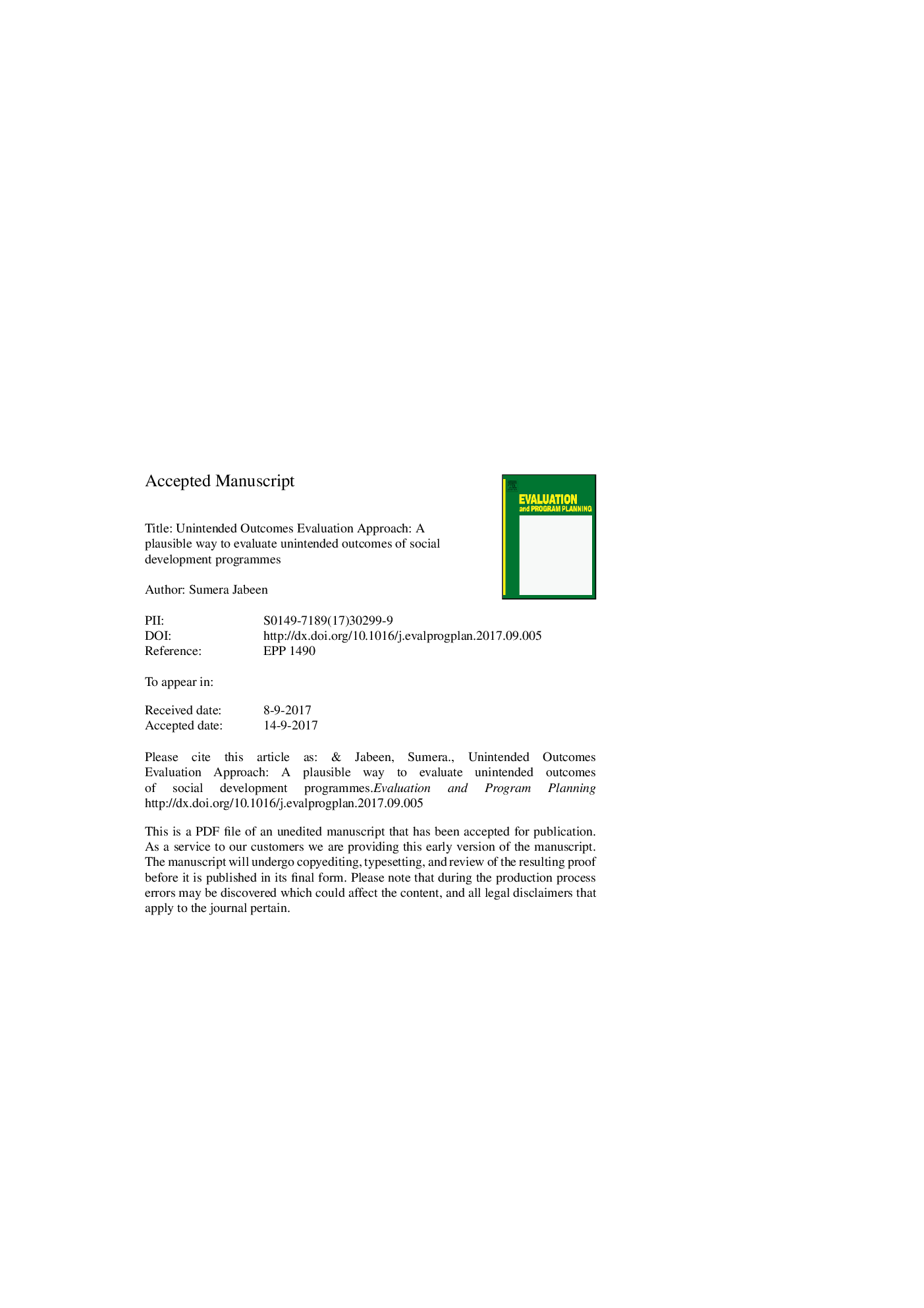| Article ID | Journal | Published Year | Pages | File Type |
|---|---|---|---|---|
| 6792163 | Evaluation and Program Planning | 2018 | 35 Pages |
Abstract
To advance the knowledge of evaluation theory, methods and practice, the author has developed an evaluation approach to study unintended effects using a theory building, testing and refinement process. A comprehensive classification of unintended outcomes on the basis of knowability, value, distribution and temporality helped specify various type of unintended outcomes for programme evaluation. Corresponding to this classification, a three-step evaluation process was proposed including a) outlining programme intentions b) forecasting likely unintended effects c) mapping the anticipated and understanding unanticipated unintended outcomes. This unintended outcomes evaluation approach (UOEA) was then trialled by undertaking a multi-site and multi-method case study of a poverty alleviation programme in Pakistan and refinements were made to the approach.The case study revealed that this programme was producing a number of unintended effects, mostly negative, affecting those already disadvantaged such as the poorest, women and children. The trialling process demonstrated the effectiveness of the UOEA and suggests that this can serve as a useful guide for future evaluation practice. It also provides the discipline of evaluation with an empirically-based reference point for further theoretical developments in the study of unintended outcomes.
Related Topics
Health Sciences
Medicine and Dentistry
Public Health and Health Policy
Authors
Sumera Jabeen,
